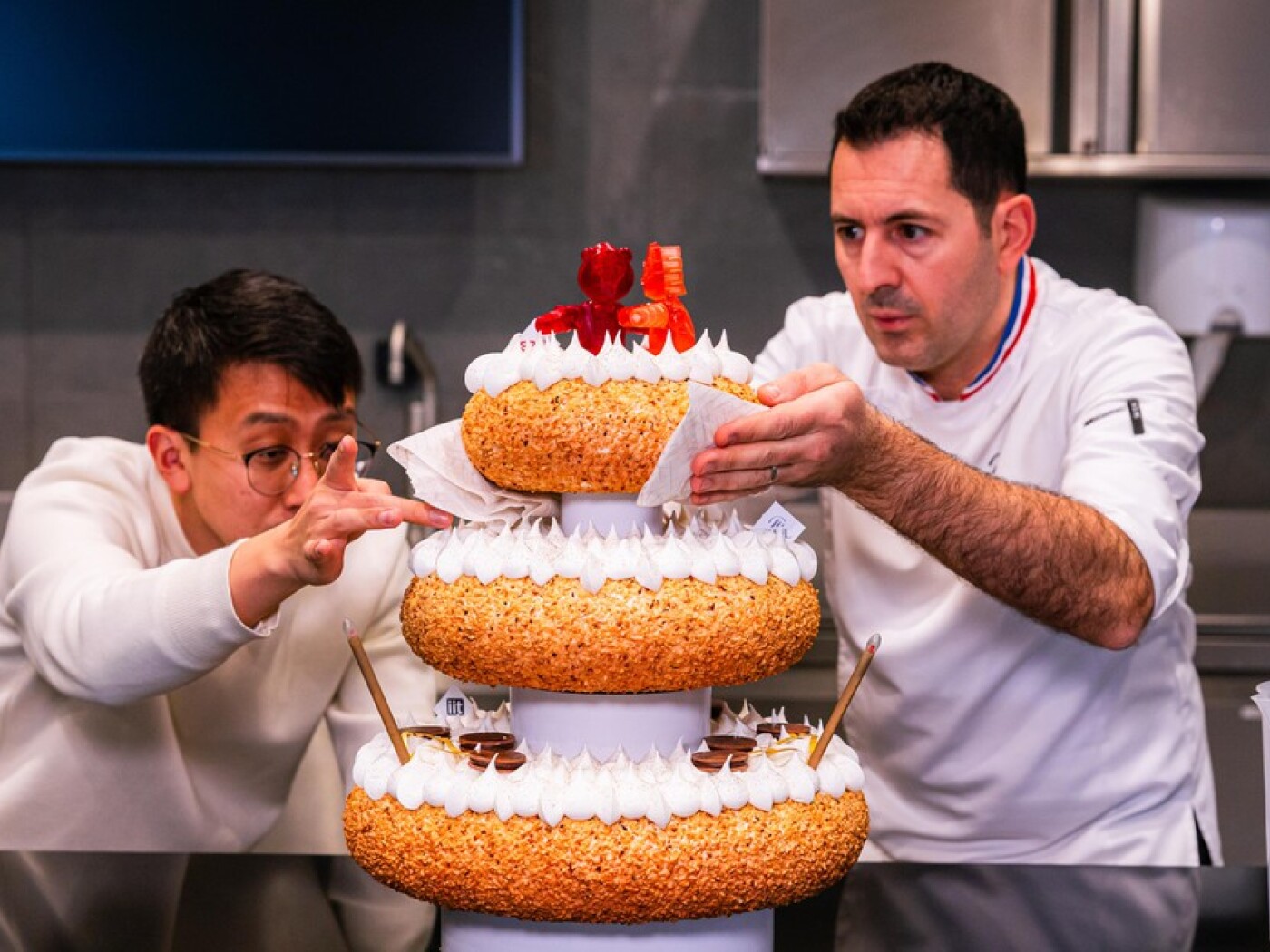
World Expo: Swiss present robot-controlled wedding cake with edible battery

Confectioners and scientists from Switzerland and Italy have created a robot-controlled, edible wedding cake. "RoboCake", as the project is called, is currently being presented in the Swiss pavilion at the World Expo in Osaka, Japan.
+Get the most important news from Switzerland in your inbox
Creating edible robots or robot food is a very real challenge that many scientists are taking on, wrote the Swiss Federal Institute of Technology Lausanne (EPFL) in a press release on Monday.
As part of the European RoboFood programme, scientists from EPFL and the Italian Institute of Technology (IIT) worked together with confectioners and experts from the Lausanne School of Hotel Management to combine robotic science and gastronomy. The result is “RoboCake”.
At the top of this wedding cake are two moving figures, fully edible gummy bears developed at EPFL. They are made from gelatine, syrup and colourings. The sugar figures are brought to life by an internal pneumatic system: when air is blown into the figure, its heads and arms move.
+ Switzerland – where the robots of tomorrow are born
Battery is also edible
But the two pomegranate-flavoured gummy bears are not the only thing that makes this cake so unique. Under the leadership of Mario Caironi, researchers at the IIT have invented the first edible, rechargeable battery.
This battery, which consists of vitamin B2, quercetin, activated charcoal and chocolate, is safe to eat and also powers the LED candles on the cake. The first flavour you notice when eating the batteries is dark chocolate, followed by a surprising spiciness caused by the edible electrolyte inside the batteries.
The combination of robotics and nutrition offers many opportunities, especially in terms of reducing waste, both in electronic devices and food, said Dario Floreano, director of the Laboratory of Intelligent Systems (LIS) at EPFL and coordinator of the RoboFood project, in the statement.
The scientists are also investigating other possible applications, particularly in the field of emergency nutrition and healthcare.
Translated from German by DeepL/ts
How we work
We select the most relevant news for an international audience and use automatic translation tools such as DeepL to translate them into English. An editor then briefly reviews the translation for clarity and accuracy before publication. Providing you with automatically translated news gives us the time to write more in-depth articles. The news stories we select have been written and carefully fact-checked by an external editorial team from news agencies such as Bloomberg or Keystone.
Did you find this explanation helpful? Please fill out this short survey to help us understand your needs: https://survey.survicate.com/d0df481d0b13412d/?p=anonymousExternal link

In compliance with the JTI standards
More: SWI swissinfo.ch certified by the Journalism Trust Initiative






























You can find an overview of ongoing debates with our journalists here . Please join us!
If you want to start a conversation about a topic raised in this article or want to report factual errors, email us at english@swissinfo.ch.